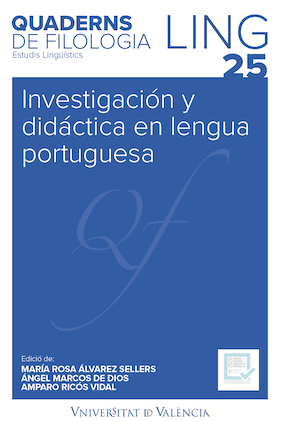Studies on the Acquisition / Learning of Nominal Gender by Non-native Learners of Portuguese: Pedagogical Relevance
DOI:
https://doi.org/10.7203/qf.0.19078Keywords:
nominal gender, Portuguese as a non-native language, Portuguese as a foreign language, interlanguage development, instructional design. Abstract
Abstract
Nominal gender (both value assignment and agreement) is one of the most challenging stuctures for learners of Portuguese as a non-native language (PNNL), as existing studies on the acquisition of Portuguese have demonstrated (Ferreira, 2011 and 2019; Godinho, 2010; Leiria, 2006; Li & Flores, 2019; Mariotto & Lourenço-Gomes, 2013; Mariotto, 2014; Lacsán, 2015; Martins, 2015; Pinto, 2015, and Silva, 2018). In this paper, these studies are examined in the light of the pedagogical implications of their findings, considering their potential contribution to the description of PNNL learners’ built-in syllabus (Corder, 1967). Such an analysis, although currently lacking, is of utmost importance for guiding instructional design.
 Downloads
Downloads
Downloads
Published
How to Cite
-
Abstract585
-
PDF (Español)485
Issue
Section
License
 Este obra está bajo una licencia de Creative Commons Reconocimiento-NoComercial-SinObraDerivada 4.0 Internacional.
Este obra está bajo una licencia de Creative Commons Reconocimiento-NoComercial-SinObraDerivada 4.0 Internacional.
Authors who publish with this journal agree to the following terms:
- Authors retain copyright and grant the journal right of first publication with the work simultaneously licensed under a Creative Commons Attribution License that allows others to share the work with an acknowledgement of the work's authorship and initial publication in this journal.
- Authors are able to enter into separate, additional contractual arrangements for the non-exclusive distribution of the journal's published version of the work (e.g., post it to an institutional repository or publish it in a book), with an acknowledgement of its initial publication in this journal.
- Authors are permitted and encouraged to post their work online (e.g., in institutional repositories or on their website) prior to and during the submission process, as it can lead to productive exchanges, as well as earlier and greater citation of published work (See The Effect of Open Access).



